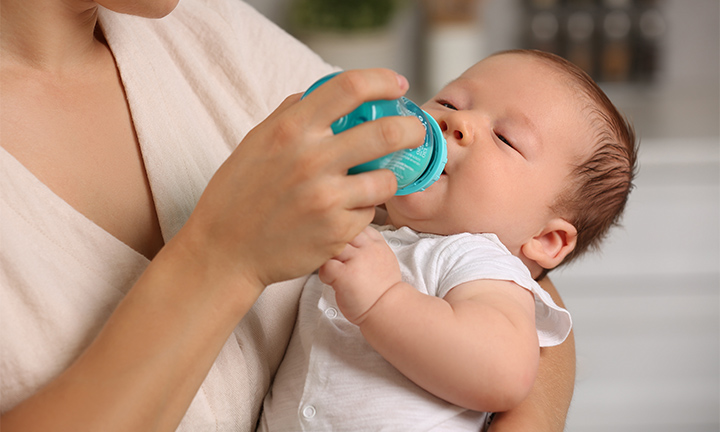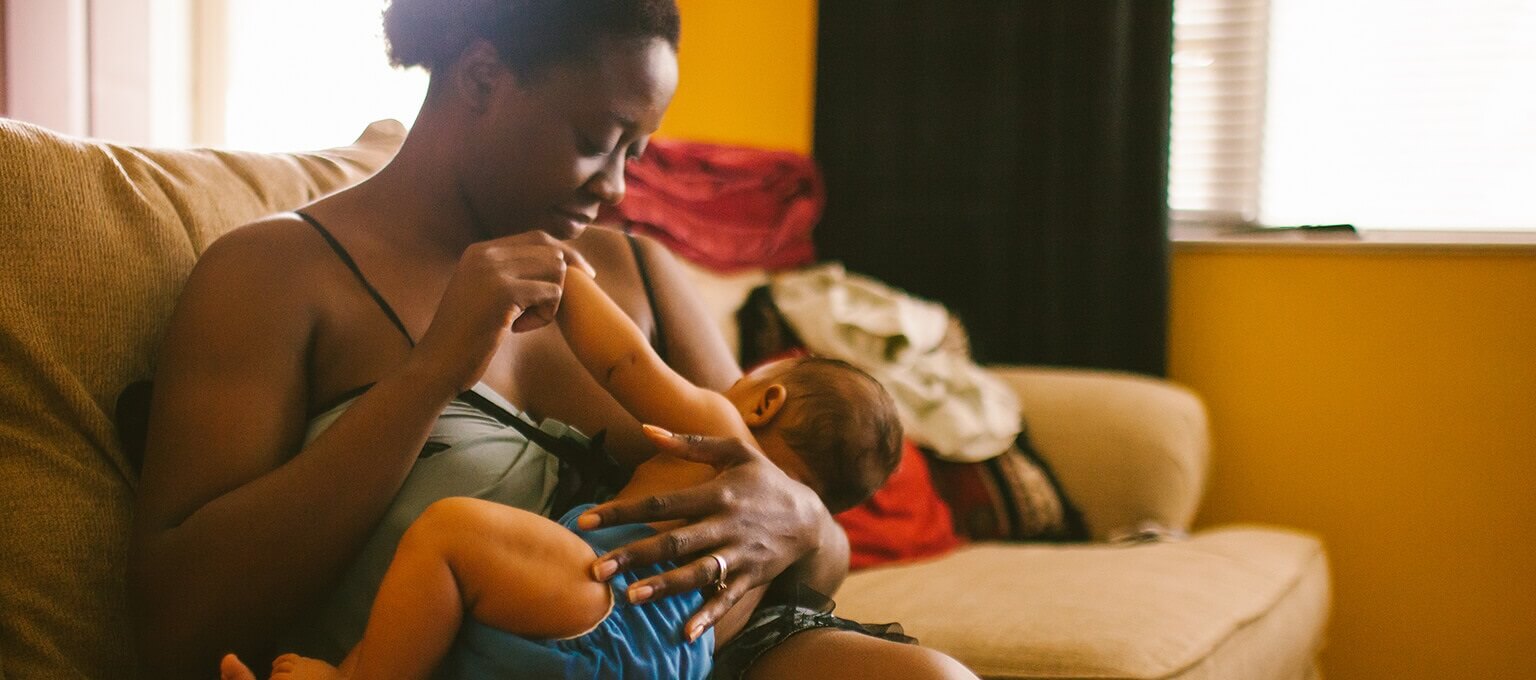
Why You Should Wake a Newborn to Eat
If you have a newborn baby, the first few weeks consist of eating and sleeping––around the clock. Newborns need to eat frequently day and night to keep up with the massive growth that happens at the beginning of their life. Usually, a newborn wakes up every few hours (sometimes less) to feed, but sometimes a baby may sleep through their usual mealtime. While in some cases sleeping through a meal is a sign your baby is starting to regulate their circadian rhythm, it’s important to know how long your newborn can go without feeding so you ensure they keep up with the amount of nutrients they need to develop and thrive.
How Often Do Newborn Babies Need to Eat?
When your baby needs to eat, they likely will cry. Many experts recommend you feed your baby on demand, or as soon as they cry for a feeding, for the first few weeks of life.
A newborn baby typically cries to eat, or wakes up to eat, every 1 to 3 hours, or approximately 8 to 12 times a day. However, sometimes your newborn may want to eat even more often than that. A baby who drinks formula may ask for a feeding every 3 or 4 hours.
Why Do Newborns Need to Be Fed So Much?
Newborns need to be fed so often to get the calories they need to keep up with their rapid growth. If your baby doesn’t feed enough during the day, they can lose too much weight, develop jaundice, or experience other health issues as they get older. In the first 5 months of their life, your baby may double their birth weight––and likely will triple their birth rate by their first birthday!
How Long Can I Let My Newborn Sleep Without Eating?
Experts recommend not letting a newborn baby go more than 4 or 5 hours without eating.
Usually, a baby will let you know they are hungry for their next feed by crying. However, if your baby sleeps through a normal feeding period, or sleeps for more than 4 or 5 hours, it’s recommended that you wake them up to nurse or give them a bottle.
If your baby is sleeping through a feed, you can consider offering a dream feed, which is when you gently rouse your baby enough for them to latch but don’t fully wake them up.
When Can My Baby Sleep Through the Night Without Feeding?
When you have a 4 month-old baby, their circadian rhythm will start to mature. At this time, your baby’s sleep cycles and patterns will start to change, and they will start to sleep more at night and less during the day. When your baby is more awake during the day and sleeps longer stretches at night, they naturally will start to eat more calories during the day and need less at night. It’s normal for a 4-month-old baby to still feed 2 to 3 times a night. When your baby reaches between 5-months-old and 9-months-old, your pediatrician may tell you that your baby no longer needs to be fed at night. When you are told your baby can drop the night feeds, it’s likely because they are getting the nutrients they need during the day and no longer need breast milk or formula at night. If your baby no longer needs to feed at night but still wakes looking for milk, it’s likely because they have associated falling asleep with feeding. To help them break this habit of relying on feeding to fall back asleep, download the Smart Sleep Coach by Pampers™ app. Built by pediatricians and sleep consultants, the app creates a personalized plan for you and your baby to help them build healthy sleep habits and fall asleep independently––without needing to feed. Remember: all babies are different, and many will continue to feed at night past 9-months-old. Speak to your pediatrician for questions about your baby’s feeding schedule.
When Can I Let My Baby Skip Feedings?
Depending on how much your baby eats during the day and if they are gaining enough weight, you may be able to let your baby skip feedings. Between 5 months and 9 months of age many babies get the green light from their pediatrician to stop feeding at night. Some babies may not be able to skip nighttime feedings until they are older. Around this time, their sleep and feeding schedule may change to account for their changing sleep patterns.
What if My Baby Wakes Up to Eat at a Different Time?
If you don’t feed your baby at night anymore but they start waking up to feed, it’s recommended you don’t feed them. Feeding your baby at night after a certain point can result in them developing an unhealthy sleep habit or crutch. Instead of feeding your baby when they wake up at night, first give your baby a moment to settle––it’s normal for a baby to wake between sleep cycles and oftentimes they can soothe themselves back to sleep on their own. If your baby seems to be fully woken up, sleep consultants recommend you try to give them reassurance verbally from afar to help them soothe themselves back to sleep. If your baby wakes fully and is protesting, you can enter their room with the lights low and, with a quiet voice, gently reassure them with a pat or shushing. If your baby continues to wake at night looking for food even though they no longer need a night feed, take this FREE sleep assessment to get a personalized plan to help you support your baby as they break the habit of associating feeding with sleep.
FAQS AT A GLANCE
Typically, the longest your newborn can sleep without eating is 2-3 hours if they are drinking breast milk and 3-4 hours if they are drinking formula. A newborn should be fed on demand around 8-12 times a day to make sure they get the calories and nutrients they need to gain weight, develop, and thrive.
The Bottom Line
Some babies will naturally start to sleep through the night without waking to eat, but if your baby is a newborn, it’s important to wake them up for a feeding. Even though your baby sleeping through the night is the eventual goal, a newborn baby needs to eat every few hours (including at night) to ensure they get enough calories to grow as quickly as they do at the beginning of their life.
Speak to your pediatrician when your baby is between 5-months-old and 9-months-old to see if your baby is ready to drop their night feed. We promise you will stop having to wake up for night feeds eventually––but not quite yet!
- European Journal of Public Health, “Infant feeding: the effects of scheduled vs. on-demand feeding on mothers' wellbeing and children's cognitive development”
- Journal of Sleep Research, “Sleep and physical growth in infants during the first 6 months”
- BMC Public Health, “The effect of mild sleep deprivation on diet and eating behaviour in children: protocol for the Daily Rest, Eating, and Activity Monitoring (DREAM) randomized cross-over trial”
Read more about Baby
Related Articles
Join a World of Support
through Pregnancy and Parenthood.





